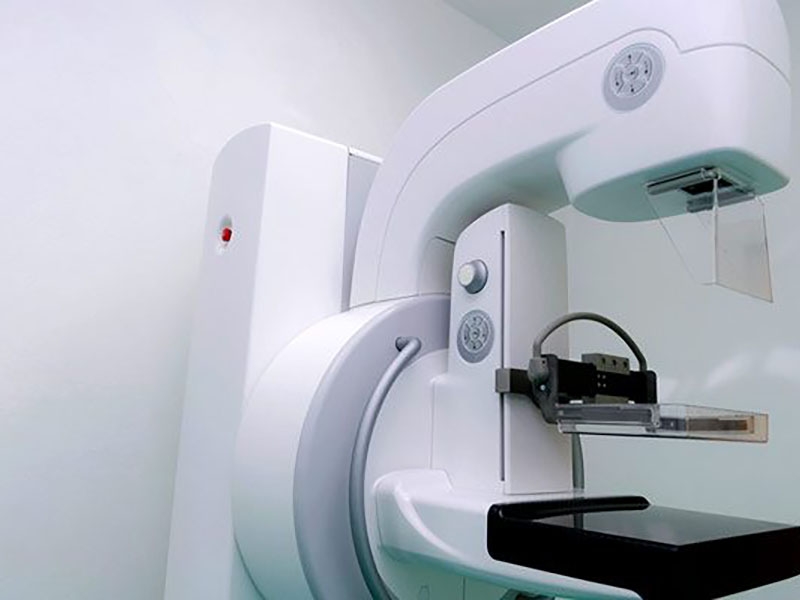Clinic Consultation in Orangeville / ON, provides exceptional Mammogram exam services, an essential diagnostic tool in the early detection and prevention of breast cancer. Our clinic is outfitted with advanced mammography technology, enabling our experienced radiologists to capture high-resolution images for a comprehensive analysis of breast tissue. We emphasize the importance of regular mammograms in identifying abnormalities at an early stage, significantly improving treatment outcomes. Patients at Clinic Consultation are supported through a streamlined process, from scheduling to exam completion, ensuring comfort and privacy. Our team offers detailed guidance on pre-exam preparation and provides compassionate follow-up care, including a thorough discussion of results and next steps. For women in Orangeville / ON, seeking reliable and professional Mammogram exam services, Clinic Consultation is dedicated to providing superior care with a focus on patient education and empowerment in breast health management.
Mammogram in Orangeville / ON

Watch our video about Mammogram
Mammogram in Orangeville / ON
A Mammogram is a specialized X-ray procedure used to examine breast tissue for abnormalities such as lumps, masses, or calcifications. It is the most effective method for early detection of breast cancer, often identifying issues before they can be felt or cause symptoms. Mammograms play a critical role in preventive health care, particularly for women over the age of 40 or those with a family history of breast cancer.
During a mammogram, the breast is compressed between two plates to spread the tissue evenly, allowing for clear images of the internal structures. This helps detect any unusual growths or changes that might indicate the presence of cancer or other breast conditions.
Types of Mammograms
Screening Mammogram
A Screening Mammogram is performed on women who have no apparent symptoms of breast problems, such as lumps or pain. This type of mammogram is a routine procedure used for preventive care and early detection of breast cancer. It typically involves taking two X-ray images of each breast, one from the top and one from the side.
Screening mammograms are recommended annually or biennially for women over 40, or earlier for those with higher risk factors such as a family history of breast cancer. By detecting breast cancer early, often before it has spread, a screening mammogram can significantly increase the chances of successful treatment. The procedure takes about 15 minutes, and results are usually available within a few days.
Diagnostic Mammogram
A Diagnostic Mammogram is used when there is a specific breast concern, such as a lump, pain, nipple discharge, or an abnormality found during a screening mammogram. This type of mammogram provides more detailed images than a screening mammogram, often including additional angles and magnified views of specific areas of the breast.
The diagnostic mammogram helps to determine whether the abnormality is benign (non-cancerous) or potentially malignant (cancerous). It is also used to monitor changes in the breast over time or to evaluate patients who have had prior breast surgery. A diagnostic mammogram typically takes longer than a screening mammogram, as it requires more images and closer evaluation by the radiologist.
Advantages of a Mammogram
Mammograms offer several key advantages in breast health management:
- Early detection of breast cancer: Mammograms can detect breast cancer early, when it is most treatable, often before any symptoms are noticeable. Early detection can lead to less aggressive treatment and better outcomes.
- Non-invasive: The procedure is non-invasive, using low-dose X-rays to capture detailed images of the breast without surgery or incisions.
- Quick and effective: Mammograms take just 10-15 minutes to complete, and results are typically available within a few days.
The test is relatively quick, with minimal discomfort, and allows for immediate follow-up if any abnormalities are detected.
Frequently Asked Questions (FAQ)
1. How often should I get a mammogram?
For women over 40, it is generally recommended to have a mammogram every 1-2 years. However, the frequency may vary based on personal and family health history. Your doctor can guide you on the best screening schedule.
2. Is a mammogram painful?
Some women experience slight discomfort or pressure during the compression of the breast, but the discomfort is brief and tolerable. The procedure typically lasts only a few minutes.
3. Can a mammogram detect all breast cancers?
While mammograms are highly effective for detecting most breast cancers, they may not catch all types, particularly in women with dense breast tissue. In such cases, additional imaging tests, like Ultrasound or MRI, may be recommended.
Mammogram Services at Clinic Consultation
At Clinic Consultation, we offer comprehensive mammogram services using state-of-the-art technology to ensure accurate and reliable results. Whether you need a routine screening mammogram or a more detailed diagnostic evaluation, our experienced radiologists are here to provide expert care and guidance.
Book an appointment today to schedule your mammogram at Clinic Consultation and take a proactive step toward protecting your breast health.
Click the button below to schedule your appointment online.